At the discussion session at the group evaluating the results of the implementation of the 2024 socio-economic development plan and the 2025 socio-economic development plan on October 26, many delegates agreed with the necessity of investing additional state capital at the Joint Stock Commercial Bank for Foreign Trade of Vietnam ( Vietcombank ) to institutionalize the Party's policies and the National Assembly's Resolution.
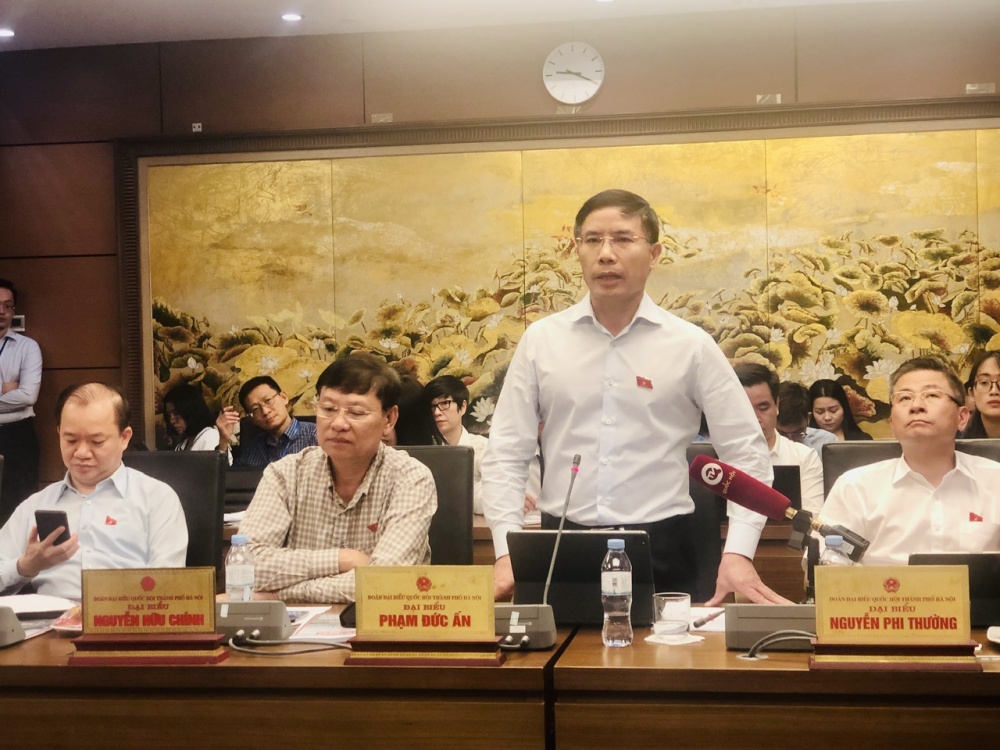 |
| National Assembly Delegate Pham Duc An speaks at the meeting |
Delegate Pham Duc An ( Hanoi City Delegation) said that increasing charter capital for Vietcombank is very important because this bank plays a key role in the Vietnamese banking system.
Vietcombank is one of four state-owned commercial banks, along with BIDV, VietinBank and Agribank, accounting for 41.5% of outstanding loans in the entire system. These banks are always at the forefront of implementing monetary policy, playing an important role as "players" of the State and the State Bank in regulating the market. However, currently, the charter capital of state-owned commercial banks, including Vietcombank, is lower than that of some joint-stock commercial banks. Although outstanding loans are less than half of some large banks, VPBank, Techcombank and ACB have charter capital of VND79,000 billion, more than VND70,000 billion and VND44,000 billion, respectively. Meanwhile, state-owned commercial banks such as Vietcombank operate very effectively with good profit margins, both implementing monetary policy and bringing economic benefits, but their charter capital is quite low.
Meanwhile, the Law on Credit Institutions stipulates a minimum capital safety ratio of 8%, calculated by dividing equity capital (mainly from charter capital) by risky assets. With a credit growth rate of 10-15% per year, Vietcombank needs to increase its charter capital to ensure capital safety ratio, maintain market share and leading position in the market.
Currently, increasing charter capital for state-owned commercial banks is still facing many difficulties. Agribank is a 100% state-owned bank, quarterly profits must be paid to the budget, so requesting to increase capital is very complicated. Joint-stock commercial banks are allowed to retain undistributed profits for reinvestment, while state-owned banks have to go through many cumbersome administrative procedures.
In order for Vietcombank to continue to develop, meet the demand for credit growth and play a leading role, there needs to be a more flexible and effective mechanism for increasing charter capital. Instead of having to carry out complicated and time-consuming procedures for capital increase as at present, there should be a mechanism that allows state-owned commercial banks to proactively increase their charter capital annually based on their business performance. This will help Vietcombank in particular and state-owned commercial banks in general operate more effectively, contributing to the stability and development of the country's economy.
Delegate Nguyen Viet Ha (Tuyen Quang delegation) also highly appreciated the Government's report and the National Assembly's Economic Committee's review of the additional state capital investment in Vietcombank. The delegate said that increasing capital for Vietcombank is appropriate.
Vietcombank is a joint stock commercial bank with 74.8% of charter capital owned by the State. Data on the scale of total assets, capital sources, and outstanding debt as reported by the Government are all very good, especially despite the large outstanding debt scale, Vietcombank's bad debt ratio is 0.99%. Pre-tax profit in 2023 is 40,456 billion VND. Budget contribution from 2021-2023 is about 29,000 billion VND; in the period 2019-2023, Vietcombank is always rated as A.
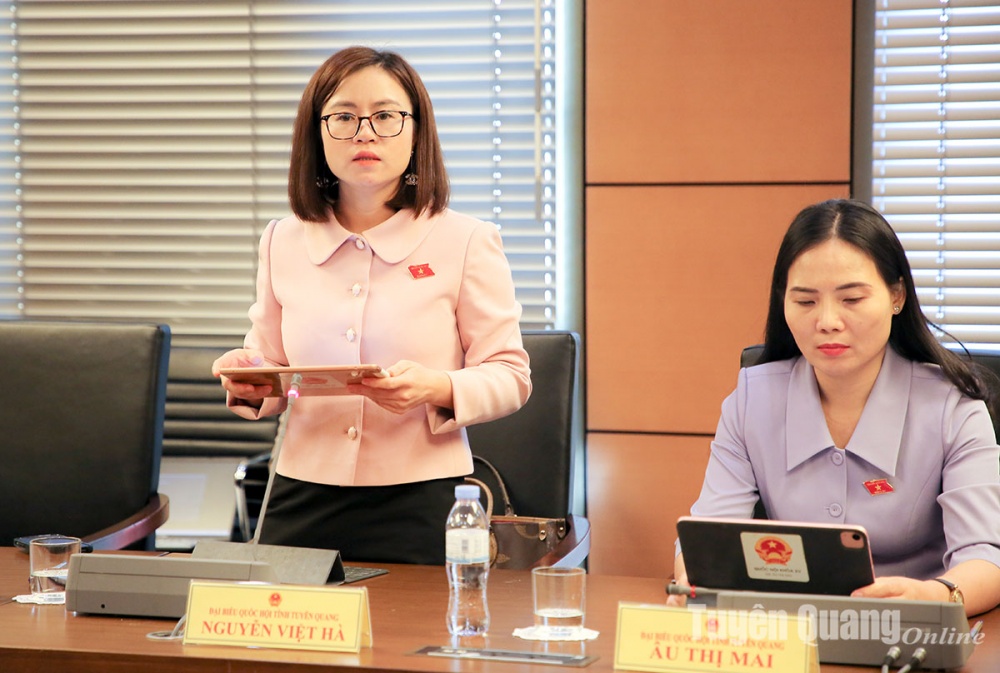 |
| Delegate Nguyen Viet Ha |
Vietcombank is one of the four largest state-owned commercial banks today, one of the four banks that plays a leading role and is a tool for the Party and the State to manage the monetary market, including the particularly important task of meeting the capital needs of the economy, including credit for many important national projects with particularly large capital needs, and facilitating the supply of capital and payment services for the economy.
In particular, on September 23, 2024, the Government issued a Resolution approving the Plan for compulsory transfer of a weak credit institution to Vietcombank. This is a solution implemented according to the Politburo's policy to restructure and rearrange weak credit institutions, aiming to ensure the safety of the credit institution system and stabilize the macro economy. When Vietcombank implements this compulsory transfer, it will be necessary to increase its financial capacity, especially its charter capital, to have enough resources to support finance as well as to expand credit as a basis for transferring a part of the outstanding debt to the weak credit institution. Ms. Ha assessed that this is a very important reason to increase the charter capital for Vietcombank.
However, Vietcombank's current charter capital is still low compared to some other credit institutions. Vietcombank's current charter capital is 55,891 billion VND, much lower than VPBank (79,339 billion VND), Techcombank (70,450 billion VND) and there is not a big difference compared to some other joint stock commercial banks such as MB (52,871 billion VND), ACB (44,667 billion VND), SHB (36,629 billion VND).
Meanwhile, the current Law on Credit Institutions stipulates a limit on credit granting to 1 customer and 1 customer and related person. If Vietcombank's charter capital is not increased, it will affect the capital provision according to this regulation. In addition, according to the Banking Industry Development Strategy to 2025, with a vision to 2030, Vietcombank is striving to reach out to the region to be in the top 100 largest banks in Asia in terms of total assets. However, currently, Vietcombank's charter capital and total assets are quite low compared to regional and international banks.
Another difficulty for Vietcombank is the minimum capital adequacy ratio (CAR). According to the Government's report, Vietcombank's individual CAR as of December 31, 2023 was 11.05%, consolidated CAR was 11.39%. Vietcombank's CAR ratio ensures compliance with the minimum requirements prescribed by the Law on Credit Institutions (8%), but is lower than that of the group of joint stock commercial banks in Vietnam (VPBank is 12-13%, Techcombank is 13-15%), much lower than banks in the Asia and Southeast Asia region.
Furthermore, this CAR ratio depends largely on the profit after tax, after setting aside funds that Vietcombank is retaining (about 50% of equity capital), and partly depends on capital-increasing bonds (about 5% of equity capital). This ratio is high but not sustainable.
In case Vietcombank has to continue to pay cash dividends for all of its after-tax profits, after setting aside these funds, without being allowed to pay dividends in shares to increase its charter capital as proposed, the Tier 1 capital ratio and CAR will decrease to 5.64% and 6.28%, respectively, not meeting the minimum level of the Law on Credit Institutions. Accordingly, the consequence is that Vietcombank may reduce nearly VND 280 trillion in outstanding debt to ensure the CAR ratio reaches 8%, and the capital supply to the economy will be affected. Therefore, increasing capital for Vietcombank is very necessary.
“The capital increase for Vietcombank does not affect the state budget because the remaining accumulated profit up to 2018 and 2021 of Vietcombank is the remaining profit after paying taxes, setting aside funds and paying cash dividends, currently accounted for and monitored at Vietcombank and is not a state budget revenue item according to the provisions of the State Budget Law,” said Ms. Ha.
Regarding the legal basis, according to the Government's report and the Economic Committee's review report, it is very complete and guaranteed. Vietcombank's capital increase plan has been agreed by shareholders, including strategic shareholder MIZUHO (accounting for 15% of charter capital).
“I agree with the Government's proposal to include the content of agreeing to invest additional state capital at Vietcombank in the Resolution of the 8th Session of the 15th National Assembly,” said delegate Nguyen Viet Ha.
Delegate Hoang Van Cuong (Hanoi City Delegation) said that increasing Vietcombank's charter capital is correct because the bank needs to increase its equity capital to ensure its capital adequacy ratio (CAR). Currently, Vietcombank's CAR is about 11%, the target according to Basel III is 13% or more.
 |
| Delegate Hoang Van Cuong |
However, the problem is that more than half of the current 11% CAR is not charter capital but undistributed profits and investment savings. This amount can be distributed to shareholders, but if it is distributed, CAR will decrease. The bank proposed to convert this amount into undistributed equity to increase charter capital.
“I think investing here is necessary. The total amount proposed to be converted is 27 trillion VND, which is very small compared to the total undistributed amount of 97 trillion VND. So why is such a small number proposed? The profit in 2022 is about 21 trillion VND, in 2023 about 25 trillion VND. Thus, the total retained profit that can be converted into capital in these two years is very large, but we only propose to convert 27 trillion VND of 2019, the remaining 46 trillion VND of 2022 and 2023, why not handle it but still hang it up? I think it is necessary to convert this part into charter capital to increase equity capital,” Mr. Cuong expressed.
According to Mr. Cuong, increasing Vietcombank's charter capital is to increase the CAR ratio, but in fact, we are taking from one pocket to another, taking from retained profits and converting them into charter capital. Thus, the total equity capital does not change. Taking a portion of the accumulated capital to charter capital does not change the total equity capital, and therefore cannot increase CAR.
Therefore, in addition to putting profits from 2021, 2022, 2023 into capital, there needs to be another way to increase capital, which is to issue stocks or bonds to mobilize capital from outside. If you keep taking one pocket and putting another, the total capital will remain the same.
Third, this is the second time I have seen a state-owned bank requesting to increase its charter capital by converting accumulated profits into capital. Last time it was Agribank, this time it is Vietcombank. They invested profitably, accumulated it, and now they have to ask the National Assembly to convert it into capital.
“In 2019 and 2020, the profit was low, so the Government decided to convert it into charter capital without asking. In 2022 and 2023, the profit was high (more than 20,000 billion, the State held 74%), but the Government could not decide on its own but had to ask the National Assembly. I think this is a very unreasonable issue. What they want to do with the money of enterprises is the business of enterprises, the Government decides, why do we have to ask? This issue requires amending the Law on State Capital Management at Enterprises. Otherwise, this situation will restrain and hinder the development of enterprises,” Mr. Cuong said.
Source: https://thoibaonganhang.vn/dai-bieu-quoc-hoi-nhat-tri-voi-su-can-thiet-tang-von-dieu-le-tai-vietcombank-157135.html










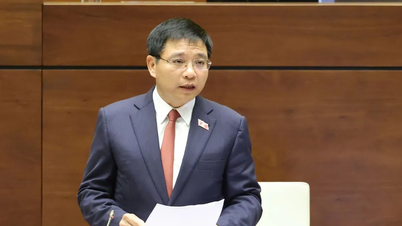

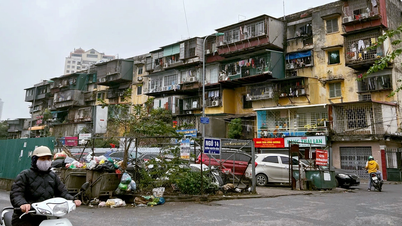



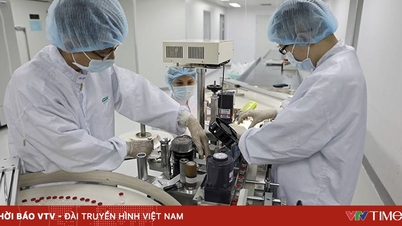



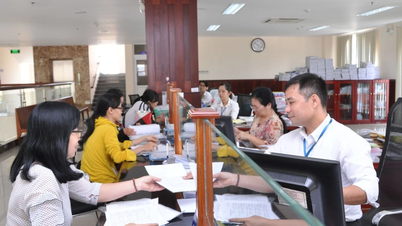



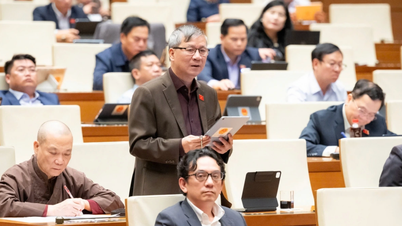








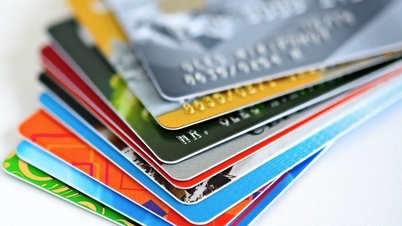


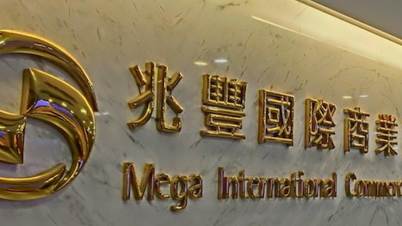
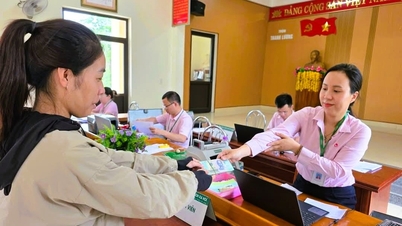




























































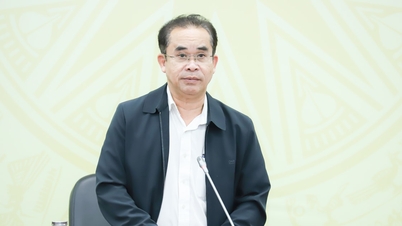


















Comment (0)